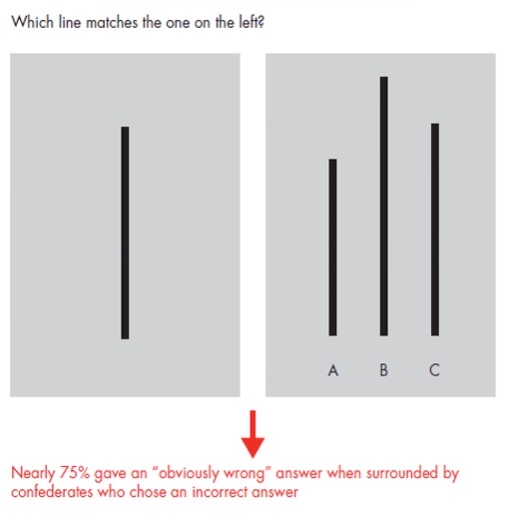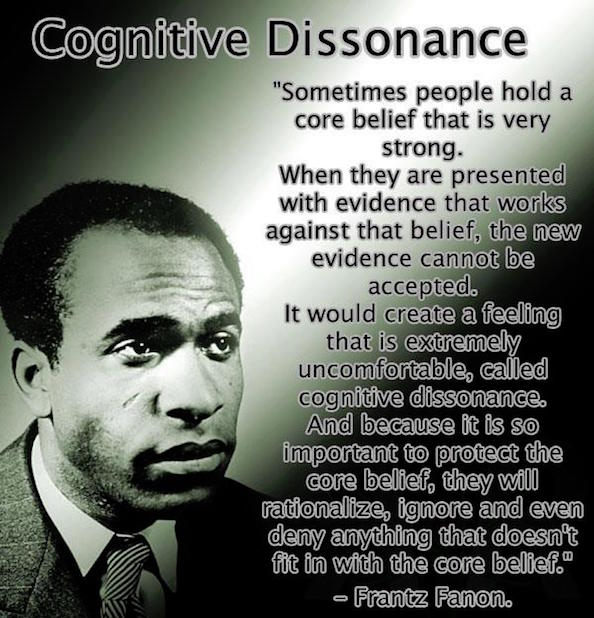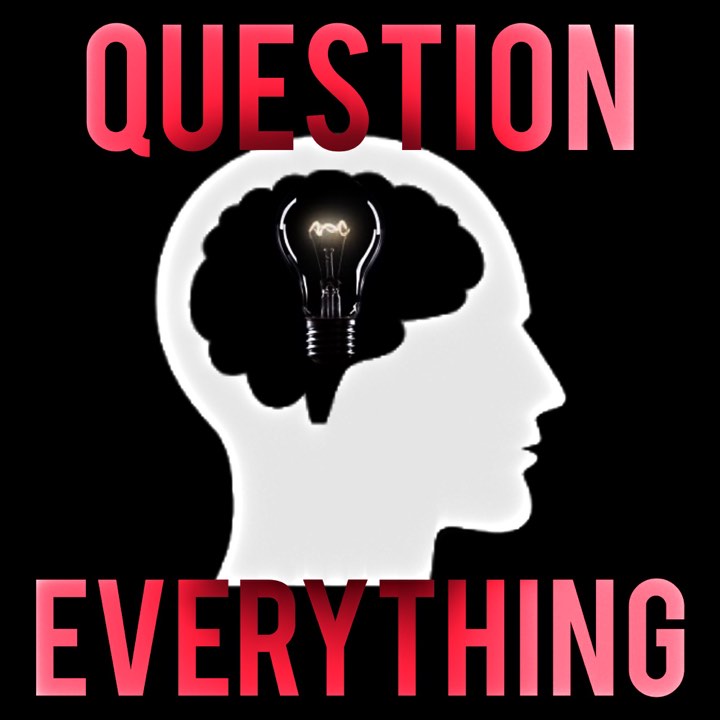
We all know of the very obvious examples of media manipulation or getting people to believe something that just is not true. Political history is full of examples of this, some written into political history like Machiavelli’s ‘The Prince’ which coined the phrase-
‘the ends justify the means’.
Or in more recent history, Joseph Goebells in Nazi Germany who stated ,
‘ A lie told once remains a lie but lie told a thousand times becomes the truth’.
The role of the mass media in perpetuating untruths has also been apparent for years and powerful in influencing popular belief.
For example many people believe that lemmings, the small vole like rodents ,were prone to mass suicide by jumping from cliff tops. Nothing could be further from the truth but Walt Disney portrayed their behaviour that way in an oscar winning documentary “White Wilderness’ made in 1958.
So enduring was the myth that many people still believe it to be true and ‘like lemmings off a cliff’ has entered our language .
In the same vein TV has become a powerful force in shaping beliefs. Each year we endure a ‘April Fool’s day’, when the press and TV try to very publicly pull a prank on the public.
Back in 1957, Richard Dimbleby no less, pulled a hoax BBC Panorama programme about the ‘spaghetti harvests’ in Italy where people were seen pulling strings of spaghetti from trees. At that time if you asked where you could buy olive oil, you would be told to go to the chemist, so you can imagine how some people may have been taken in by it.
Why do we fall for it?
What is less known is what makes us believe wrong information or believe propaganda and lies? What goes in inside our brain when we choose one side of an argument over another? In this article we hope to explore this and try to gain a greater understanding of the unconscious influence over our own thought process and how this can be manipulated.
We human beings don’t always make good decisions. Our rational judgment is influenced not only by our passions and emotions but also by built-in biases such as overconfidence in our own abilities. Another big factor in the quality of decisions is whether a decision involves a group.
Group dynamics can lead otherwise sensible individuals to make (or agree to) decisions they might not come to on their own. By conforming to a group many people will go along with the group view regardless of what they themselves might think as individuals.
Psychologist Solomon Asch showed how powerful this could be asking people to pick which of three lines was the same as another line. Nearly every subject chose correctly when choosing alone but when subjects were put into groups, with planted ‘confederates’ instructed to pick the wrong lines, people chose the wrong line through conformity with the group.

So what happens when we make a choice and get confronted with contradictory information?

To answer questions about how we make and live with decisions we need to go deeper into the world of cognitive psychology.
We need to think of our minds like a giant iceberg.

This field of psychology tells us that only about 10% of the tip is out of the water so to speak. This conscious mind has information that is always available to us. It is our day to day decision making and it is where we think logically.
Going deeper,below the surface another 50% is made up of the subconscious mind where our habits, beliefs and feelings and recent memories are stored. Although we have our recurring thoughts, here we have to ‘dig’ to retrieve or access the information.
Deeper still is our unconscious mind where the remaining 40% of what makes up our mind exists. As well as being made up of the functions that occur automatically like breathing, we also have deeper memories stored here. These may be about traumatic events, it could be about phobias that we have but the point is that all of this information is ‘hidden’ from us and is very resistant to change.
However it is important to know that people can ‘re-learn’ about phobias and past trauma and store ‘over-riding’ information in the other two areas of the mind. This is how people can bring about positive change in their lives. We in effect can re-write past trauma.
When we make a decision like a consumer choice our minds creates a new ‘significance’ and parts of our minds without us being aware of it seeks out supporting information.
For example if you bought a car that had a certain make and colour you really liked you will start to notice immediately all the other cars on the road with similar make and colour almost overnight. Your brain will have sought out information to support your choice and you didn’t even have to think about it. Alternatively you can ask yourself how many red cars did you see today on the way to work? Then ask the same question tomorrow, your brain will have noticed a whole lot more red cars.
What else can our brains do we do not realise?
We have all seen those posts on social media with only the first and last letters of words in a sentence being correct. Somehow we are all able to read it and understand. Like this:
I cnduo’t bvleiee taht I culod aulaclty uesdtannrd waht I was rdnaieg. Unisg the icndeblire pweor of the hmuan mnid, aocdcrnig to rseecrah at Cmabrigde Uinervtisy, it dseno’t mttaer in waht oderr the lterets in a wrod are, the olny irpoamtnt tihng is taht the frsit and lsat ltteer be in the rhgit pclae. The rset can be a taotl mses and you can sitll raed it whoutit a pboerlm. Tihs is bucseae the huamn mnid deos not raed ervey ltteer by istlef, but the wrod as a wlohe. Aaznmig, huh? Yaeh and I awlyas tghhuot slelinpg was ipmorantt! See if yuor fdreins can raed tihs too.
Our minds are indeed powerful and can do thousands of different tasks without us being aware of what is making us tick.
The act of picking up your mug of tea or coffee involves thousands of cues and calculations involving feedback from sensors in our fingers and hands, our arm movements, our eyes and our nose. Is it going to burn my lips?
We do it effortlessly and without thought. We make a choice to make the cup of tea but our mind takes over and our behaviour kicks in.
How this information about how we think is applied by corporations selling us goods and media oultlets providing us news becomes very significant.
We like to think we are all free agents and are constantly making rational decisions but are we? Marketing and advertising companies use an understanding of brain functioning to sell us everything from sweet fizzy drinks to motor cars.
In the world of media marketing the repetition of information like familiar brand names gets a range of messages across. Some of the longest tuning adverts in history have been from the biggest corporations who spend millions of dollars creating and maintaining their brands.Coca-Cola can even claim to have shaped the worlds view of Santa Claus.
The same is true in the world of news and mass communication. How can improving our understanding of basic psychology improve our understanding of complex mass media in our day to day living? Since the days Joseph Goebells made his comments ; ‘ A lie told once remains a lie but lie told a thousand times becomes the truth’. There have been many attempts by novelists and film makers to capture this sense of manipulation of our free will. George Orwell’s 1984 gave us a dystopian view of a possible future now past and some might say has come true in parts. In the novel the media and the state are one in the same. Citizens were encouraged to engage in a daily ‘5 minutes hate’ of the enemies of Big Brother, aka the state.

Alduos Huxley’s Brave New World was conceived at a time when Psychology was obsessed with behavioural conditioning and his Brave New World portrayed a world of reproductive technology, sleep-learning and the calming of human emotions through state controlled drugs ( soma) therapy. All of this was probably a result of the fear of Communism and Fascism in equal measure on the part of the authors. But it is a recurring theme for writers with such similar dystopian literary efforts such as the Hunger Games.
Given what we know about our minds to unconsciously ‘seek out’ information ,there is one more important psychological concept which is key to explaining our decision making behaviour and how mass media organisations can manipulate our decision making behaviours.
Cognitive dissonance.
When we decide on something like continuing to smoke cigarettes we are confronted with contradictory information saying smoking is bad for us. This creates a ‘dissonance’ or imbalance that we will strive to put back into balance.
So as a smoker you would probably try to rationalise by putting counter information against this ‘bad’ information you are confronted with. Such as: ‘everyone is going to die sometime’ or ‘ I can stop anytime I want but just not now’ etc. We make the ‘dissonance’ less uncomfortable.

There is an environmentalist conflict here-
- It is important for you to take care of the environment.
- You are driving a car that is not environmentally-friendly.
A more common example of cognitive dissonance occurs in the purchasing decisions we make on a regular basis. Most people want to hold the belief that they make good choices. That is where advertising comes in. Companies actively use this information safe in the knowledge that when we make a consumer choice our minds are actively searching for information to support that choice. Advertising campaigns are only too happy to provide it.
The same is also true about modern day mass media, press and television. Let’s look at two big choices people made in the last 3-4 years.One of these was over Scottish Independence in 2014 and the other was the EU referendum on leaving or remaining the European Union in 2016.The thing about a refurendum is that they polarise results in terms of Yes or No , Leave or Remain. As such they are a perfect example of ‘dissonance’ creation and resisting change to a core belief.
Depending on your viewpoint the role of the media and the state,( Mr Rupert Murdoch does regularly meet successive Prime ministers) has been to support the result of both plebiscites. Following the Independence vote in Scotland there has been a steady stream of press and television media stories to support voters decisions to vote No and thus reduce their dissonance when confronted with any contradictory information. Parties favouring independence do not hold much sway in controlling media outlets so the flow of ‘dissonance’ reducing information is pretty much one-way.So stories that undermined the parties that stood for a Yes vote and stories that played down or actively undermined any successful Scottish Government initiatives would help to sustain and consolidate future No voters in other subsequent referendum despite any contradictory information. If you were a Yes voter the impact of this might also be to place doubts in your mind about the ability of Scotland being able to govern itself for example. All of this is perhaps more of a moot point in terms of an independence referendum as the whole process seems to be a holding pattern since 2014 and it’s looking to be landed again around 2019.

When you apply the same thinking to the Brexit vote the psychological principles look much more challenging for the mass media. It is looking increasing like the ideas sold to the public during the campaign are unravelling on a daily basis; the likely impact on the fishing industry; the huge cost of Brexit which the government seems to willing to pay not holding to the promise to pay money directly into the NHS; the length of time the whole process will take and the daily stories that just seem to pop up everywhere raising doubts about the value of Brexit and way the whole process has been handled by senior politicians. By contrast the media seems confused by the process and while it is still trying desperately to stick with the line ‘the UK is leaving the EU’ the contradictory information is really stacking up against such a move. Those people who voted to leave included people who were going up to EU citizens the day after the vote saying to them ‘have you not left yet?’ Not every ‘leave’ voter had such extreme views but the ‘dissonance’ they all must be collectively feeling just now must be very difficult to rationalise and ‘get back into harmony’.
A healthy mind is an open mind.

Media manipulation is not inevitable. We do not have to accept the diet of ‘fake news’ we are being fed and more and more people across the world are actively doing something about it.
The new millennium has seen the rise and rapid global spread of what can fairly be called a new democratic institution, the independent political fact-checker. The first organisations dedicated to publicly evaluating the truth of political claims appeared in the United States in the early 2000s, anchoring what would become a staple of political reporting practised by nearly every major US news outlet. Over the past decade, meanwhile, independent fact-checkers have emerged in more than 50 countries spanning every continent. According to the most reliable global count, 113 such groups are active today. More than 90% were established since 2010; about 50 launched in the past two years alone.
Just like when we buy a new car and wake up the next day and suddenly notice all those similar cars we get a warm feeling of comfort in having made the right choice.We can also make a new ‘significance’ for any of our hopes and dreams by having a strong picture and feeling about what we aspire to in our minds.We can put it there ourselves and it can become our ‘prize’ that we strive to achieve.Our minds will dutifully assist by gathering up all the worthwhile information we need to achieve it if we make it strong enough. So whatever your ‘prize’ is, keep your minds eye on it.
This was ‘Wee Geordie’s prize‘ hope you get yours.
A DreamAngus Blog
